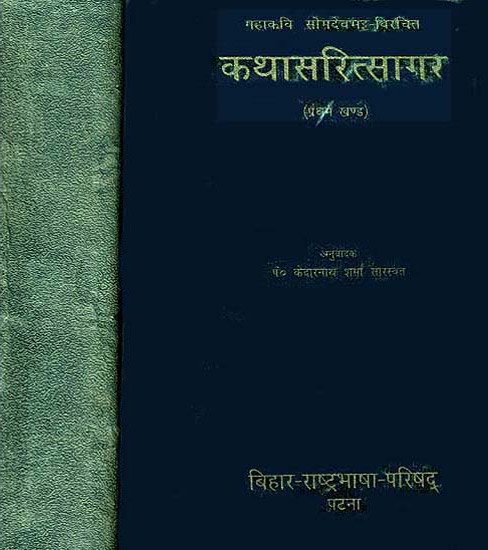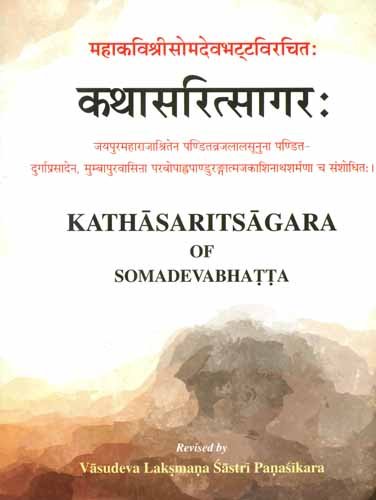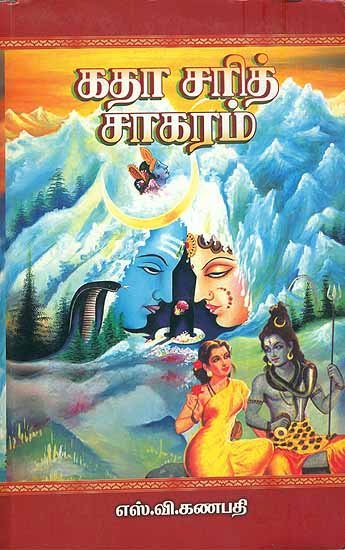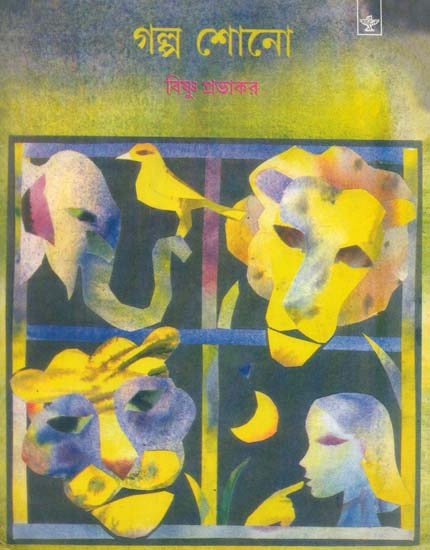Kathasaritsagara [sanskrit]
by C. H. Tawney | 2014 | 226,424 words | ISBN-13: 9789350501351
The Sanskrit edition of the Kathasaritsagara referencing the English translation and grammatical analysis. Written by Somadeva and dating from the 12th century, the Kathasaritsagara (or Katha-sarit-sagara) represents an epic legend narrating the adventures of Naravahanadatta as he strives to become the destined emperor of the Vidyadharas. Alternative titles: (Kathāsaritsāgara, कथासरित्सागर, Kathā-sarit-sāgara)
Verse 8.2.388
वन्दितसदारकश्यपमुनिचरणो वन्दितो मयाद्यैश् च ।
सो ऽथ सरोषं पश्यन् सूर्यप्रभम् उक्तवान् मयं शक्रः ॥ ३८८ ॥
vanditasadārakaśyapamunicaraṇo vandito mayādyaiś ca |
so 'tha saroṣaṃ paśyan sūryaprabham uktavān mayaṃ śakraḥ || 388 ||
The English translation of Kathasaritsagara Verse 8.2.388 is contained in the book The Ocean of Story by C.H. Tawney. This book is available online or you could buy the latest edition:
Read online Buy now! The English translation by C.H. Tawney (2014)
Glossary of Sanskrit terms
Note: This extracts Sanskrit terms and links to English definitions from the glossary, based on an experimental segmentation of verse (8.2.388). Some terms could be superfluous while some might not be mentioned. Click on the word to show English definitions.
Vandita, Sadara, Kashyapa, Carana, Vanditri, Maya, Yah, Yat, Sah, Atha, Sarosha, Pashyat, Suryaprabha, Uktavat, Shakra,
Analysis of Sanskrit grammar
Note: this is an experimental feature and only shows the first possible analysis of the Sanskrit text (Kathasaritsagara Verse 8.2.388). If the system was successful in segmenting the sentence, you will see of which words it is made up of, generally consisting of Nouns, Pronouns, Verbs, Participles and Indeclinables. Click on the link to show all possible derivations of the word.
- Line 1: “vanditasadārakaśyapamunicaraṇo vandito mayādyaiś ca ”
- vandita -
-
vandita (noun, masculine)[compound], [vocative single]vandita (noun, neuter)[compound], [vocative single]√vand -> vandita (participle, masculine)[vocative single from √vand class 1 verb]√vand -> vandita (participle, neuter)[vocative single from √vand class 1 verb]
- sadāra -
-
sadāra (noun, masculine)[compound], [vocative single]sadāra (noun, neuter)[compound], [vocative single]
- kaśyapam -
-
kaśyapa (noun, masculine)[adverb], [accusative single]kaśyapa (noun, neuter)[adverb], [nominative single], [accusative single]kaśyapā (noun, feminine)[adverb]
- uni -
-
ū (noun, neuter)[locative single]
- caraṇo* -
-
caraṇa (noun, masculine)[nominative single]
- vandito* -
-
vanditṛ (noun, masculine)[vocative single]vandita (noun, masculine)[nominative single]√vand -> vandita (participle, masculine)[nominative single from √vand class 1 verb]
- mayād -
-
maya (noun, masculine)[adverb], [ablative single]
- yaiś -
-
ya (noun, masculine)[instrumental plural]yaḥ (pronoun, masculine)[instrumental plural]yat (pronoun, neuter)[instrumental plural]
- ca -
-
ca (indeclinable conjunction)[indeclinable conjunction]ca (noun, masculine)[compound], [vocative single]ca (noun, neuter)[compound], [vocative single]
- Line 2: “so 'tha saroṣaṃ paśyan sūryaprabham uktavān mayaṃ śakraḥ ”
- so' -
-
saḥ (indeclinable correlative)[indeclinable correlative]so (noun, feminine)[compound]sa (noun, masculine)[nominative single]
- atha -
-
atha (indeclinable)[indeclinable]
- saroṣam -
-
saroṣa (noun, masculine)[adverb], [accusative single]saroṣa (noun, neuter)[adverb], [nominative single], [accusative single]saroṣā (noun, feminine)[adverb]
- paśyan -
-
paśyat (noun, masculine)[nominative single], [vocative single]
- sūryaprabham -
-
sūryaprabha (noun, masculine)[adverb], [accusative single]sūryaprabha (noun, neuter)[adverb], [nominative single], [accusative single]sūryaprabhā (noun, feminine)[adverb]
- uktavān -
-
uktavat (noun, masculine)[nominative single]√vac -> uktavat (participle, masculine)[nominative single from √vac class 2 verb], [nominative single from √vac class 3 verb]
- mayam -
-
maya (noun, masculine)[adverb], [accusative single]mayā (noun, feminine)[adverb]
- śakraḥ -
-
śakra (noun, masculine)[nominative single]
Other editions:
Also see the following editions of the Sanskrit text or (alternative) English translations of the Kathasaritsagara Verse 8.2.388
Kathasaritsagar
by Kedarnath Sharma Saraswat (2005)
The Only Edition with the Sanskrit Text and its Hindi Translation (An Old and Rare Book) Set of 3 Vol.
Buy now!
Kathasaritsagara of Somadeva Bhatta (Sanskrit Text Only)
by Vasudeva Laksmana Sastri (2013)
Katha Sarit Sagar in Marathi
by H. A Bhave (1995)
Set of 5 Volumes; Published by Varada Books, Pune. 2256 pages (Throughout B/W Illustrations).
Buy now!
Katha Sarit Sagara (Tamil)
by S. V. Ganapati (எஸ். வி. கணபதி) (2014)
[கதா சரித் சாகரம்] Published by Alliance Publications.
Buy now!
Galpa Shono
by Abhijit Chattopadhyay (2014)
[গল্প শোনো] Galpa Shono: Bengali Translation of 'Suno Kahani From Katha Sarit Sagar'; 9788126015436; Published by Sahitya Akademi, Delhi.
Buy now!Preview of verse 8.2.388 in Bengali sript:
বন্দিতসদারকশ্যপমুনিচরণো বন্দিতো মযাদ্যৈশ্ চ ।
সো ঽথ সরোষং পশ্যন্ সূর্যপ্রভম্ উক্তবান্ মযং শক্রঃ ॥ ৩৮৮ ॥
![Kathasaritsagara [sanskrit] - book cover](/uploads/a/Katha-Sarit-Sagara.jpg)




